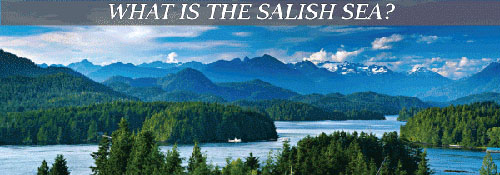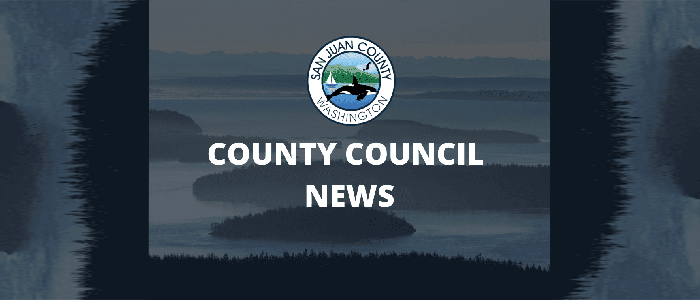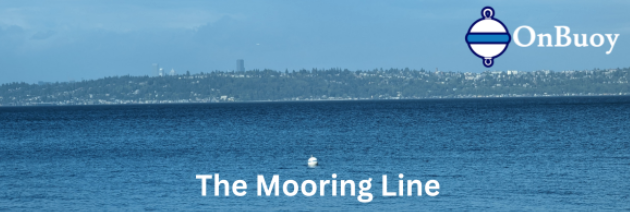||| BY MATTHEW GILBERT, REPORTER |||
On October 13, the Lopez Island Library hosted a panel of legislators and environmental advocates titled “Protecting the Salish Sea in the Time of Covid-19.” The event was put together by Community Rights San Juan Islands (CRSJI), a Lopez-based nonprofit exploring strategies for legally recognizing that nature – in this case, the Salish Sea – has inherent rights. It’s the local expression of an international movement that is
challenging traditional approaches for how to protect vulnerable ecosystems. (Go here for a short primer.)
The Zoom event featured six panelists:
- Alex Ramel – State Representative (40th District)
- Debra Lekanoff – State Representative (40th District)
- Lovel Pratt – Marine Protection and Policy Director for Friends of the San Juans
- Lindsey Schromen-Wawrin – Attorney for the Community Environmental Legal Defense Fund (CELDF)
- Joe Gaydos – Science Director for the SeaDoc Society
- Kurtis Dengler – Local marine/climate activist (Mosquito Fleet) and musician
It was also emphasized that the name itself – Salish Sea – acknowledges the history of the Coastal Salish, the indigenous people who have lived sustainably for generations in southwest British Columbia and northwest Washington along the shores of these waters.
Kai Sanburn of CRSJI introduced the event by stating that, “We believe that the health and well-being of the Salish Sea bioregion must be at the center of all discussions and decisions about projects with the potential to harm this ecosystem and all that depends on it. And we believe that recognizing the rights of the Salish Sea offers the unifying language and the legal frameworks to do this.”
Moderator Robin Reid (also of CRSJI) added that the purpose of the panel was to:
- Bring diverse people together.
- Identify threats to the marine ecosystem.
- Explore solutions and approaches.
- Leave you with a positive vision of how to move forward.
The six panelists offered a variety of perspectives that coalesced around a handful of key takeaways:
Efforts to date have stopped or slowed a number of fossil fuel projects, particular coal export terminals and the transmountain oil pipeline expansion, but as Gaydos cautioned, “Our actions are not keeping pace with (ongoing threats),” which include salmon depletion, the declining whale population, ocean acidification, and climate change.
- Cross-border collaborations have been improving, but much more can – and needs to – be done working with First Nations people and other organizations while also providing financial support.
- Public education, input, and movement building are critical to protection efforts.
- Enlightened policymaking at both the state and local level will depend on continued public pressure and scientific data on impacts.
On the legislative front, a couple of developments should be carefully watched.
- The Department of Fish & Wildlife has just published a draft Environmental Impact Statement (EIS) on the Commercial Whale Watching Licensing Program – open for public comment until November 13. One of the key findings, says Pratt, is that limits on commercial whale watching operations will have minimal economic impacts.
- There is a new permitting proposal for an oil terminal expansion (Roberts Bank Terminal 2) to be built in the Fraser River Delta, one mile from the Washington border. “Very little is known about it,” says Pratt. [See articles in The Narwhal and theOrcasonian.]
- The WA Department of Ecology’s “Spills Prevention Program” has been looking at vessel traffic in the Salish Sea and will soon release its report.
There were several other comments and observations worth mentioning:
- Gaydos: 17% of the fish species, 33% of bird species, and 43% of the mammal species that use the Salish Sea are listed as threatened or endangered or are candidates . . . [the health and abundance of] salmon affects 138 different species – including humans.” [Coast Salish salmon consumption rates (a historical staple) have dropped nearly 70% because the salmon are more contaminated and less available.]
- Lekanoff: “We have to rely on a platform of science that does not recognize borders . . . and it’s important to bring in industry.”
- Dengler: “The fight to stop the transmountain pipeline expansion is the single largest threat to the Salish Sea. It would move 900,000 barrels of crude oil a day and increase vessel traffic by 700%. [See Tiny House Warriors: Building solar- powered homes in the path of the pipeline.]
- Ramel: “ Stand.earth (where Ramel is Climate Policy Advisor) has been working on a campaign to encourage insurance companies to withdraw their policies for some of these projects.”
- Schromen-Wawrin: “It’s not just legislative . . . people have to change the way decision-makers think about an issue. [See “Leverage Points: Places to Intervene in a System” by Donella Meadows.]
The notion that nature has rights which would provide legal standing and policy guidance is, ultimately, a deeply philosophical question. As Schromen-Wawrin described it,
A private property owner has the legal right to destroy their own property, (which) also applies to “collectively owned” property such as the planet. [Because] we treat ecosystems as “property,” it becomes an issue of property rights instead of having its own right to exist. Do the Southern Resident Killer Whales have a right to exist? The Endangered Species Act speaks somewhat to this, but why wait until the possibility of extinction? Our legal system can slow the rate of destruction but not reverse it. In a system that turns nature into money, it can only remedy harms financially. At what point can an ecosystem legally say no? It can’t. Only a “property owner” has that power.
In closing, the panelists urged listeners to find what inspires them, be willing to leave their comfort zone, take advantage of opportunities to speak up, and don’t try to do everything. Dengler was more emphatic. “Get organized and raise hell!” he said. “There is only so much that enlightened legislators can do.”
The entire event can be viewed here. And don’t forget to vote!

**If you are reading theOrcasonian for free, thank your fellow islanders. If you would like to support theOrcasonian CLICK HERE to set your modestly-priced, voluntary subscription. Otherwise, no worries; we’re happy to share with you.**








This is a very enlightening article highlighting a very hopeful enterprise consisting of an impressive arraignment of local experts. Thank you to all involved in this effort.
It’s truly sad that we now find ourselves ruled by laws that have been lobbied into place by corporations that not only do not in any way contribute to our community’s common good, but actually promote the destruction of our environment, (that which allows us to live). The truth is that here, like everywhere, we live in a county where money talks. For example, if I was a millionaire and I called up our elected leaders and told them that I was going to file a law suit against them if they didn’t vote a particular way on a proposal… they would vote my way. Capitalism at its best.
The following quotes (see below) are reminders that if we are to solve the problems of the day, and not just the symptoms; that we need to re-consider the criteria that is currently being used for making decisions relative to our common welfare.
“A private property owner has the legal right to destroy their own property, (which) also applies to “collectively owned” property such as the planet. [Because] we treat ecosystems as “property,” it becomes an issue of property rights instead of having its own right to exist.”
and,
“Our legal system can slow the rate of destruction but not reverse it. In a system that turns nature into money, it can only remedy harms financially. At what point can an ecosystem legally say no? It can’t. Only a “property owner” has that power.”